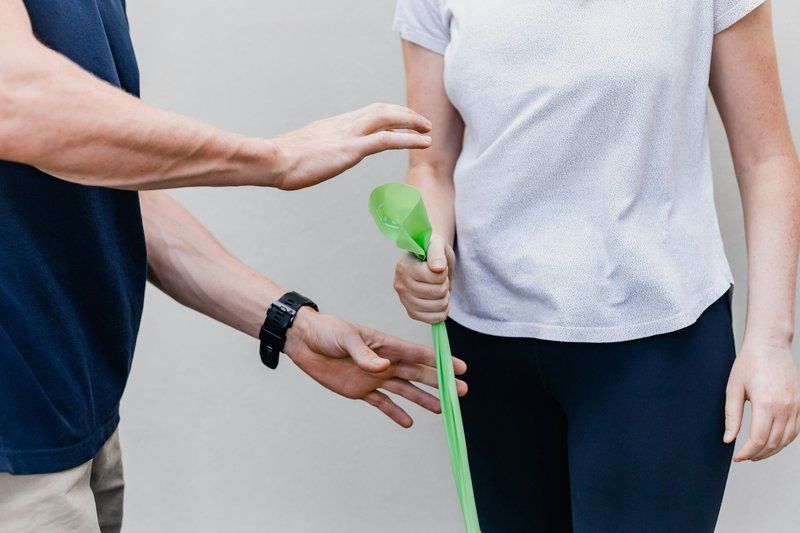
Traumatic brain injury (TBI) cases can have a profound impact on an individual’s life, requiring specialized care and support for rehabilitation. Research has revealed that the living environment plays a pivotal role in determining the outcomes of brain injury recovery. In this article, we will look into the link between living environments and brain injury rehabilitation. Understanding this connection is essential for providing tailored support and fostering optimal recovery for individuals with brain injuries.
Understanding Traumatic Brain Injuries and Living Environments
Traumatic brain injuries (TBIs) can result from various incidents, such as falls, accidents, or concussions, and often necessitate comprehensive care and rehabilitation. The living environment plays a crucial role in the recovery journey of individuals with TBIs, influencing their cognitive, emotional, and physical well-being. Tailored care and supportive living spaces are instrumental in facilitating the rehabilitation process and optimizing the overall quality of life for TBI survivors.

Tailored Care for Traumatic Brain Injury Recovery
Personalized care plans that address the specific needs and challenges of individuals with TBIs are essential for fostering a conducive living environment.
Specialized attention to cognitive rehabilitation, emotional support, and physical therapy within the living space can significantly impact the recovery outcomes.
Supportive Living Spaces: A Foundation for Rehabilitation
Living environments designed to accommodate the unique requirements of TBI survivors contribute to their overall well-being and recovery.
Accessible and safe living spaces, equipped with assistive technologies and supportive amenities, play a pivotal role in promoting independence and confidence during the rehabilitation process.
Understanding the intricate connection between traumatic brain injuries and living environments underscores the significance of tailored care and supportive living spaces in facilitating the recovery and holistic well-being of individuals grappling with TBIs.
Personalized Living Spaces: A Catalyst for Recovery
Personalized living spaces are instrumental in promoting the recovery and well-being of individuals with brain injuries, offering tailored support and a conducive environment for rehabilitation.
Impact of Personalized Living Spaces
Customized living spaces that cater to the unique needs of TBI survivors contribute to their sense of comfort, security, and independence.
Industry-specific data reveals that individuals residing in personalized living spaces exhibit improved cognitive function, emotional stability, and overall satisfaction with their living environment.
Examples of Effective Personalization
Incorporating assistive technologies, such as smart home devices and accessibility features, into living spaces enhances the autonomy and safety of TBI survivors.
Adaptable furniture, personalized decor, and sensory-friendly design elements create a supportive and calming atmosphere, positively influencing the well-being and recovery of individuals with brain injuries.
By emphasizing the impact of personalized living spaces on brain injury recovery and well-being, we underscore the significance of creating tailored environments that empower and support individuals throughout their rehabilitation journey.
Holistic Care and Environment Integration
In traumatic brain injury (TBI) rehabilitation, the integration of holistic care with the living environment is pivotal in fostering a supportive and nurturing atmosphere that promotes recovery and well-being.
Synergistic Approach to Rehabilitation
Holistic care, encompassing physical, emotional, and cognitive support, aligns with the design and functionality of the living environment to create a comprehensive framework for TBI rehabilitation.
The seamless integration of therapeutic interventions, such as cognitive therapies and mindfulness practices, within the living space contributes to a holistic approach to recovery.
Nurturing Living Environments
Living spaces designed to facilitate relaxation, social engagement, and sensory stimulation complement the holistic care approach, nurturing the emotional and psychological needs of individuals with TBIs.
Access to natural light, outdoor spaces, and communal areas within the living environment fosters a sense of connection, well-being, and overall mental health for TBI survivors.
The Role of Community and Supportive Networks For Traumatic Brain Injury Care
In the context of brain injury recovery, the role of community and supportive networks within a tailored living environment is paramount, contributing to the overall well-being and successful rehabilitation of individuals with traumatic brain injuries.

Community Integration and Support
Engaging with a supportive community of peers, caregivers, and professionals within the living environment fosters a sense of belonging, social connection, and emotional support for TBI survivors.
Industry-specific insights highlight the positive impact of community engagement on cognitive stimulation, emotional resilience, and the overall quality of life for individuals undergoing brain injury recovery.
Best Practices for Supportive Networks For Traumatic Brain Injury Care
Implementing best practices that prioritize community involvement, peer support programs, and collaborative activities within the living environment enhances the sense of camaraderie and mutual encouragement among TBI survivors.
Leveraging industry-specific insights and evidence-based approaches, tailored living environments can effectively integrate supportive networks to create a nurturing and empowering ecosystem for brain injury recovery.
The personalized care, supportive living spaces, holistic integration, and community networks within tailored living environments play a crucial role in fostering the recovery and well-being of individuals with traumatic brain injuries. By prioritizing personalized, holistic care and creating nurturing living spaces, we can significantly enhance the rehabilitation outcomes for TBI survivors. For further information on creating supportive living environments for brain injury recovery, visit Assured Senior Living .
Individualized, positive brain injury care in a home setting. Contact us today, or download our free Family Decision Toolkit guide for more information.


